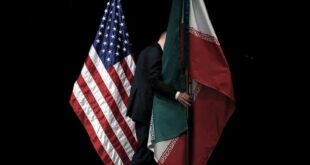 TEHRAN (FNA)- Iran’s ambassador to the International Atomic Energy Agency said that there is no technical or legal justification for Tehran to suspend its uranium enrichment activities.
TEHRAN (FNA)- Iran’s ambassador to the International Atomic Energy Agency said that there is no technical or legal justification for Tehran to suspend its uranium enrichment activities.
Even if there were countries that would provide Iran with power plants and nuclear fuel, we would not be able to trust that they would fully meet their commitment, Ali Asghar Soltaniyeh told press tv in an exclusive interview.
His remarks came after Western media outlets misquoted him as saying that Iran would consider suspending uranium enrichment if it would receive firm guarantees of nuclear fuel delivery to the country.
The Iranian official responded, however, in a telephone interview with press tv, saying that Western countries have not fulfilled their previous promises and agreements and have violated their contractual obligations.
“I reject whatever is reflected otherwise,” he continued.
When I was asked about how Tehran would respond if various countries promise to provide guarantees, I repeated two or three times (at the conference in Brussels) that I was talking about the lack of internationally negotiated consensus over supply assurance, he explained.
Former director general of the UN nuclear watchdog Hans Blix, who also attended the conference, reportedly told the Iranian nuclear envoy that Iran has every right to doubt Western guarantees.
According to Soltaniyeh, Blix was well aware that America had failed to fulfill a previous contractual obligation toward Iran by rejecting to provide the country with reactor fuel or compensation.
“Hans Blix said this is further indication that Iran has the right not to trust the West,” Soltaniyeh said.
Western powers accuse Iran, a signatory to the nuclear Non-Proliferation Treaty (NPT), of seeking nuclear weaponry.
Iran, however, says its uranium enrichment program is directed at peaceful applications of nuclear technology.
Iran is under three rounds of UN Security Council sanctions for turning down West’s calls to give up its right of uranium enrichment, saying the demand is politically tainted and illogical.
Iran has so far ruled out halting or limiting its nuclear work in exchange for trade and other incentives, saying that renouncing its rights under the NPT would encourage world powers to put further pressure on the country and would not lead to a change in the West’s hardline stance on Tehran.
Iran has also insisted that it would continue enriching uranium because it needs to provide fuel to a 300-megawatt light-water reactor it is building in the southwestern town of Darkhoveyn as well as its first nuclear power plant in the southern port city of Bushehr.
Tehran has repeatedly said that it considers its nuclear case closed as it has come clean of IAEA’s questions and suspicions about its past nuclear activities.
A recent report by 16 US intelligence bodies endorsed the civilian nature of Iran’s programs. IAEA Director General Mohammad ElBaradei has also in two separate reports – one in last November and the other one in February – praised Iran’s truthfulness about key aspects of its past nuclear activities and announced settlement of outstanding issues with Tehran.
The February report by the UN nuclear watchdog, the International Atomic Energy Agency, praised Iran’s cooperation in clearing up all of the past questions over its nuclear program, vindicating Iran’s nuclear program and leaving no justification for any new UN sanctions.
Also in his latest report to the 35-nation Board of Governors, ElBaradei confirmed “the non-diversion” of nuclear material in Iran and added that the agency had found no “components of a nuclear weapon” or “related nuclear physics studies” in the country.
The IAEA report confirmed that Iran has managed to enrich uranium-235 to a level “less than 5 percent”. Such a rate is consistent with the construction of a nuclear power plant. Nuclear arms production, meanwhile, requires an enrichment level of above 90 percent.
 Eurasia Press & News
Eurasia Press & News


